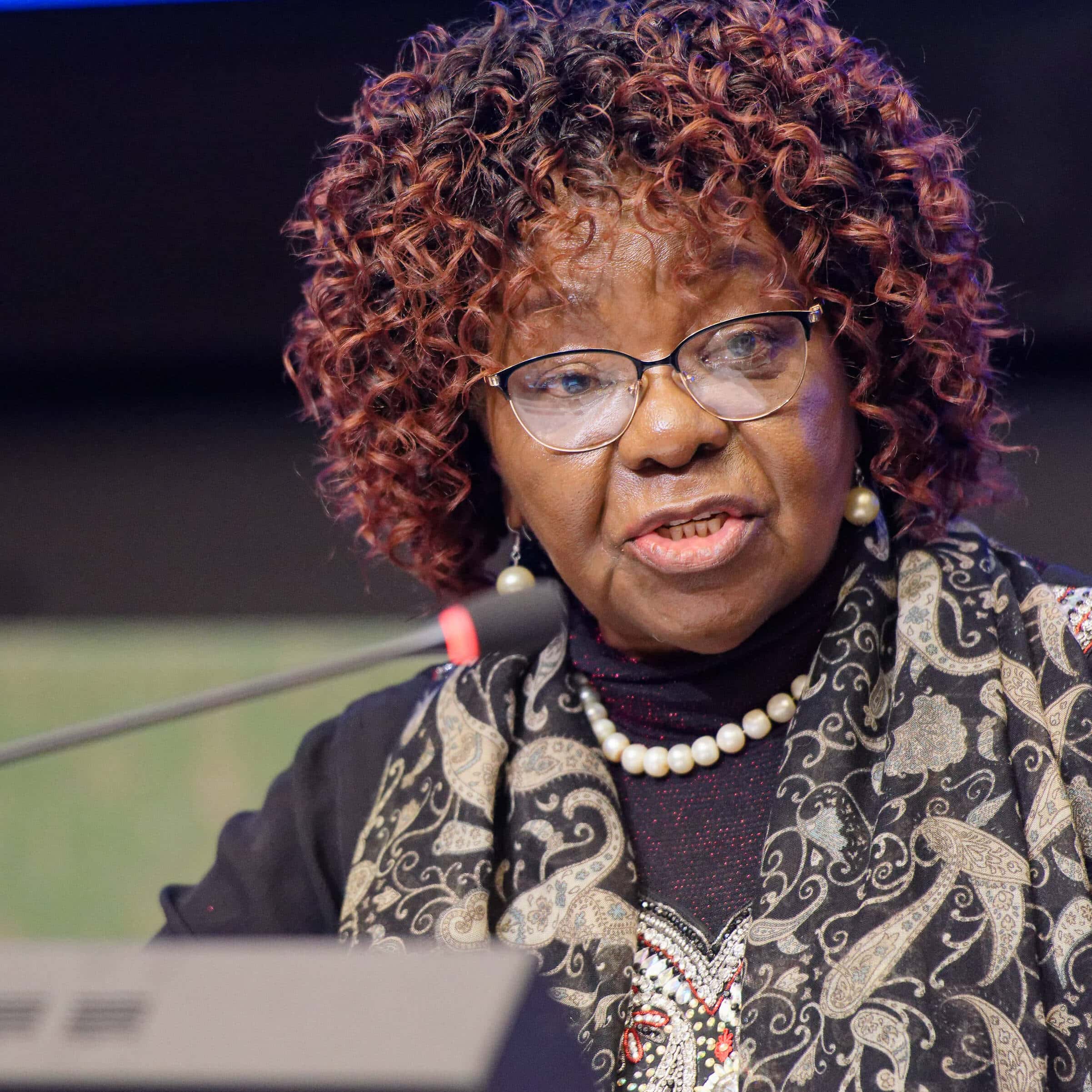
Zimbabwe: A Beacon of Hope for Community Development and Climate Resilience with Sithembiso Nyoni
Select Season
Listen to this episode: Duration: 41 min.
Quick Overview
In this episode, Sithembiso Nyoni shares about her dedication to grassroots development and improving the lives of all people, especially vulnerable communities, which inspired her to found the Organisation of Rural Association for Progress (ORAP) in Zimbabwe in 1981. Ms. Nyoni expands on how this community-based and culturally rooted initiative has helped foster deeper connections among people and has allowed for the rebuilding of a solid social fabric that had been fractured by the war, thus generating sustainable solutions for both people and the planet. Thanks to ORAP’s transformative work and the collective efforts of Zimbabwe’s rural communities, the country has achieved food self-sufficiency and remains one of the world’s lowest greenhouse gas emitters in the world today.
Ms. Nyoni’s message is one of hope and resilience, emphasizing that people most affected by climate change should be actively involved in shaping environmentally sound solutions and feel a genuine sense of belonging in the global response. She therefore invites all people to work together, share knowledge, and co-create a just and sustainable future for all.
Questions and Topics Addressed in this Episode
- What did you have in mind when you founded Organization of Rural Associations for Progress (ORAP) many years ago? What was the purpose and how did you see it evolving in its impacts?
- Zimbabwe has submitted its updated Nationally Determined Contributions (NDCs) under the Paris Agreement. How is the country progressing in meeting these climate commitments and what are the government’s top priorities in implementing them?
- What are the key challenges Zimbabwe faces in implementing sustainable development and climate resilience – particularly in rural and vulnerable communities?
- How does Zimbabwe balance the urgent need for economic development with climate responsibility – especially in a context where democratic stability and economic reform are still evolving?
- You mention that Zimbabwe has a lot of lithium and seeks to further develop this technology. Have you thought about the environmental consequences of extracting and using lithium? How could Zimbabwe further develop this technology for national use without damaging the environment?
- What kind of support – technical, financial, or political – does Zimbabwe need from international partners to accelerate its climate action and meet its NDC goals?
- The Brazilian government will be presiding over the upcoming COP30 and has launched an initiative called the Global Ethical Stock Take, which represents a unique opportunity to engage different actors in thinking and addressing climate change. How do you see the Earth Charter serving as an instrument in this effort?
- What message would you like to share with other African leaders and the global community about Zimbabwe’s vision for a climate-resilient and sustainable future?
Sithembiso Nyoni

Zimbabwe: A Beacon of Hope for Community Development and Climate Resilience
Who is Sithembiso Nyoni?
Dr. Nyoni is Founder and President of the Organisation of Rural Associations for Progress (ORAP), which was established in 1981 to support rural development in Zimbabwe. Dr. Nyoni also served in the government in multiple cabinet positions, including Minister of Small and Medium Enterprises Development, Minister of Industry and Commerce, Minister for Women Affairs and Small and Medium Enterprises and Minister of Environment, Climate and Wildlife (until April 2025). She is among the longest-serving cabinet ministers in Zimbabwe. During her time as Minister of Small and Medium Enterprises over 5 million full time jobs were created. Dr. Nyoni received several awards including the 1993 Right Livelihood Award “for building a remarkable grassroots movement and motivating its million members to follow their own path of human development.” She sits on several boards of national and international organizations. Back in 1998, Ms. Nyoni participated in the Earth Charter consultation processes through regional meetings in Africa.
This podcast is developed by Earth Charter International as part of our work as UNESCO Chair on Education for Sustainable Development with the Earth Charter.




